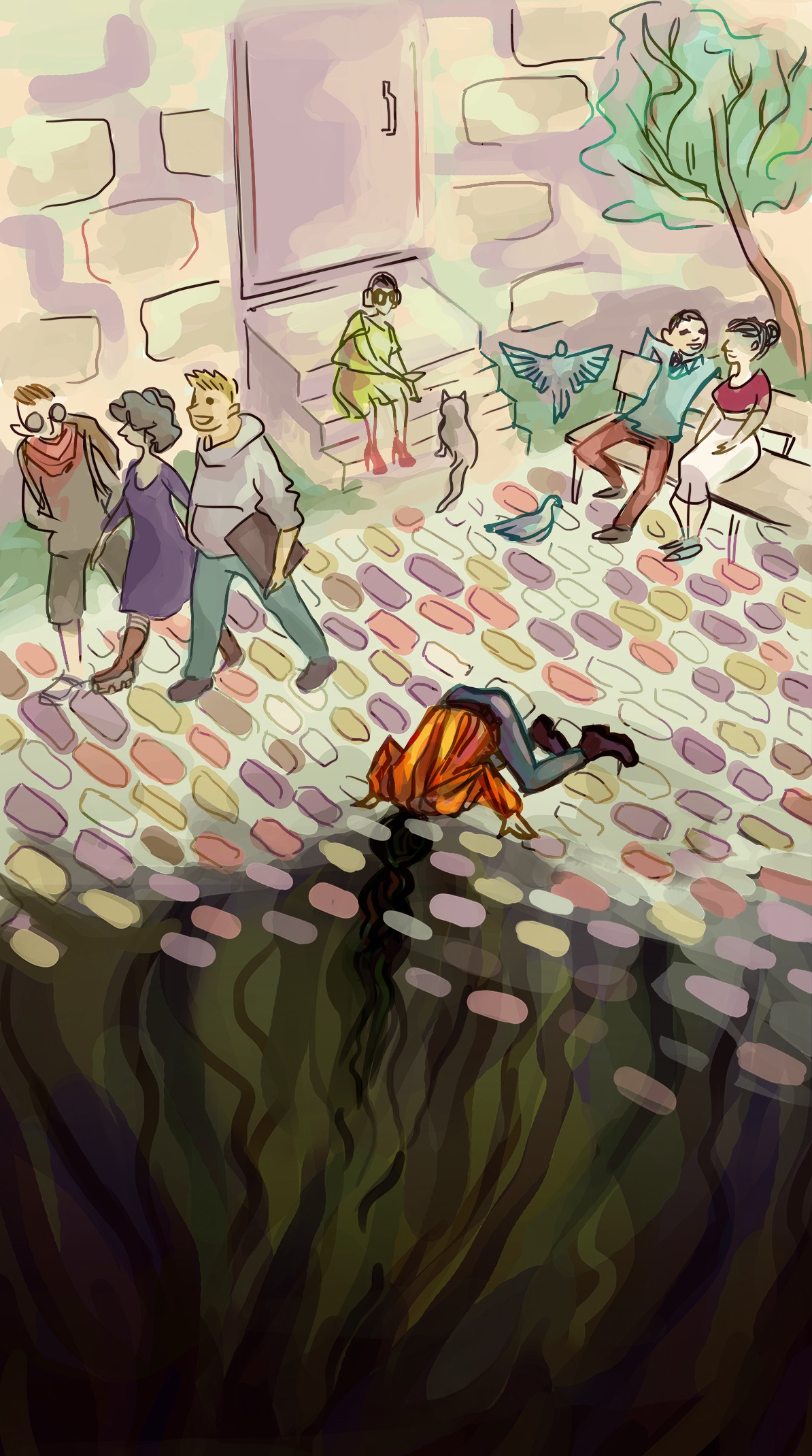Fear has an infinite number of personalities. Often times, the cliché examples come to mind, like phobia of spiders, snakes, or the dark. But there are fears that often go undiscussed, like the fear of being alone. It is a fear of living in isolation, of being devoid of the comfort that friends and family bring.
By psychological definition, and it’s no stranger to the millions of teens who move away from home for the first time to attend university; especially those who cross borders and oceans to get to McGill. The fear of loneliness hides in simple social activities that are often taken for granted, like sitting with friends at lunch, or knowing everyone in your classes. These things seem like a given until you realize that you’re eating your third meal alone that day, or that you haven’t left your room in well over five hours. Soon thereafter, the fear of loneliness sets in.
But not all students experience loneliness the same way; certain communities are more susceptible to this phenomenon, and the way it resonates with each is nuanced and varied.
The first year can feel like the hardest
One of the groups that loneliness most notably permeates is first years–and many freshmen try to counter their fears by trying to connect with as many people as possible. The result is often an overabundance of superficial acquaintanceships stemming from the same frivolous icebreaker questions heard everywhere on campus during the first week or two, such as “What are you majoring in?” and “What residence are you living in?” These questions barely skim the surface, testing the waters for potential connections that students are expected to make. There’s a race to build one’s network of friends and acquaintances—but resorting to superficial friendships can leave people feeling lonelier than they were initially.
“These [icebreaker] questions were really just conversation starters,” Isabella Lyons, U0 Arts, explained. “I only really remembered where people told me they were from because if we were both from the same place, it was something to bond over.”
For many, the struggle to maintain relationships often continues throughout university. In second year, when many students move off campus out of a student residence, they tend to lose the infrastructure of a communal space to help them socialize.
“In the first year, you’re mostly just looking for anybody that you can find to latch onto,” Matthew Foster, U2 Arts, said. “That’s why it’s a lot easier to make friends. But moving into the second year, you realize how easy it is to lose them. In the second year, I’d say it is more difficult to form friendships as well. You don’t have a lot of the same systems that put people [with similar interests as you] together.”
Transitioning from a dormitory is just one example of how new environments change patterns of socializing. For students from abroad, making an international–even intercontinental–move by themselves is not only daunting, it can be rather isolating.
International moves make for even harder transitions
For international students, finding a place on campus can be even more difficult. According to McGill Enrolment Services’ Admission profile, 32.1 per cent of the 6,467 students in the entering class of 2016-2017 were international students. Tackling cultural differences, dealing with homesickness, and building professional and social networks from scratch are just a few of the obstacles international students face.
“When I [moved from India], I was all alone,” Ravdeep Singh Boparai said. “I had to deal with everything from a different study pattern to harsh winter. Culturally, with people coming from different cultures and regions here, some mix [with each other], some do not.”
As a non-native English speaker, Boparai initially found it difficult to navigate social circles on campus.
“Now, after six months, I am able to understand people more than I used to,” Boparai said. “But some people don’t understand me, and then avoid me, or the person with whom I’ll be talking will misunderstand me.”
Though McGill’s international aspect can make it difficult to find the right niche, student organizations and events offer hope in the midst of loneliness.
“I think joining clubs and taking part in extracurriculars is one of the biggest [ways to keep] a network of people of common interests,” Foster said. “There are always people who are looking for people like them. I admit, it becomes more difficult as you go on. But I think it’s also the nature of friendships, the ones that remain are [the] genuine [ones].”
Though loneliness strikes certain communities in different ways, it can become a nuisance no matter the time or place.









